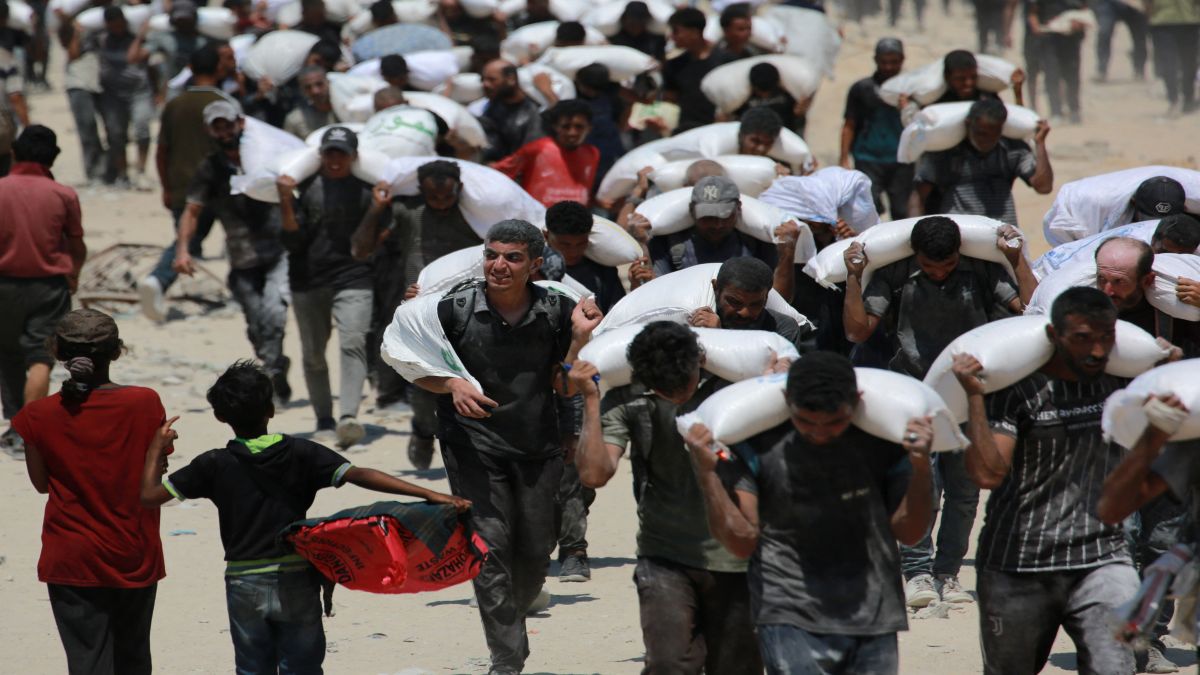Senior officials from the Trump administration informed Congress this month that Israel has pledged $30 million to the Gaza Humanitarian Foundation (GHF), mirroring a similar amount previously committed by the United States, two sources with direct knowledge told Reuters.
The contribution, not publicly disclosed until now, supports a controversial armed private aid initiative in Gaza. While the US State Department had announced its $30 million grant to GHF in June, the identities of other donors to the foundation have largely remained unknown, as GHF does not reveal its funding sources.
GHF’s operations in southern Gaza have drawn criticism from humanitarian groups and the United Nations, which label the aid effort as both unsafe and ineffective—allegations the foundation denies. Despite mounting global pressure over the worsening humanitarian crisis in Gaza, Israel has continued to back GHF’s work.
According to the sources, Aryeh Lightstone and Charles Leith—advisers to Trump’s Middle East envoy Steve Witkoff—briefed members of the U.S. Senate and House committees on July 8 and 9 about the foundation’s activities. During these sessions, they confirmed that Israel had agreed to match the American contribution, ensuring the group’s operations would be funded through July.
Neither Lightstone nor Leith responded to interview requests. The White House redirected inquiries to the State Department, which, along with the Israeli government, declined to comment.
Impact Shorts
More ShortsPresident Donald Trump said on Monday that the US had dispensed $60 million for Gaza humanitarian aid. The State Department, however, has made no other announcements beyond the $30 million approved for the GHF in June.
A third source familiar with the matter said some U.S. officials believe Trump likely was conflating the US and Israeli funds.
Lightstone and Leith told Congress the hope was that by August, other donors would see GHF’s success and contribute to its operation, allowing the foundation to double its distribution sites from four to eight, according to the sources.
Reuters could not verify whether Israel had disbursed the $30 million to GHF, which uses private for-profit US military and logistics firms to transport aid into the Palestinian enclave for distribution to its sites.
Speaking on Wednesday to the Hudson Institute think tank, GHF Executive Chairman Rev. Dr. Johnnie Moore, a former evangelical adviser to the White House during Trump’s first term, said that as a private U.S. charity, the foundation did not have to disclose its donors.
He indicated that GHF required more money. ”The biggest problem is just we need more of it, and $30 million is not going to get it done,” he said, in an apparent reference to the U.S. contribution.
GHF said in an email to Reuters that it was focused on distributing as much food as was safely possible and was continuing to press the Israeli government to allow it to open additional distribution sites, including in northern Gaza. It declined to comment on its donors or funding.
STARVATION IN GAZA
GHF has been criticized by the United Nations, aid groups and others over what they say is an unsafe aid distribution model and a breach of humanitarian impartiality standards, allegations that GHF denies.
Israel alleges that the U.N.-led aid system that has traditionally served the residents of Gaza has let Hamas-led militants loot aid shipments intended for civilians.
Hamas denies the accusation.
A recent US government internal analysis found no evidence of systematic theft of U.S.-funded aid by Hamas.
Starvation has been spreading in Gaza, and a hunger monitor on Tuesday said a worst-case scenario of famine is unfolding and immediate action is needed to avoid widespread death.
In his Wednesday remarks, Moore denied that famine is developing. ”That’s made up. There’s not a famine. There’s acute hunger. There’s not enough food in the Gaza Strip,” he said.
Gaza health authorities have been reporting increasing deaths from hunger-related causes and images of emaciated Palestinian children have drawn international condemnation.
Trump this week declared that many people were starving, contradicting Israeli Prime Minister Benjamin Netanyahu, who has said there was no starvation in the densely populated coastal enclave, largely destroyed by Israel’s military offensive that has killed over 60,000 people according to Gaza health officials.
Trump promised to set up new food centers and said the top priority in Gaza was feeding people.
Gaza’s food stocks have been running out since Israel, at war with Palestinian militant group Hamas since its fighters killed 1,200 people and took 251 hostages back to Gaza in October 2023 according to Israeli tallies, cut off all supplies to the territory in March.
That blockade was lifted in May but with restrictions that Israel says are needed to prevent aid being diverted to militant groups.
Israel says it has no aim to starve Gaza. This week it announced steps to allow more aid in, including pausing fighting in some locations, air-dropping food and offering more secure routes.
With inputs from agencies
)